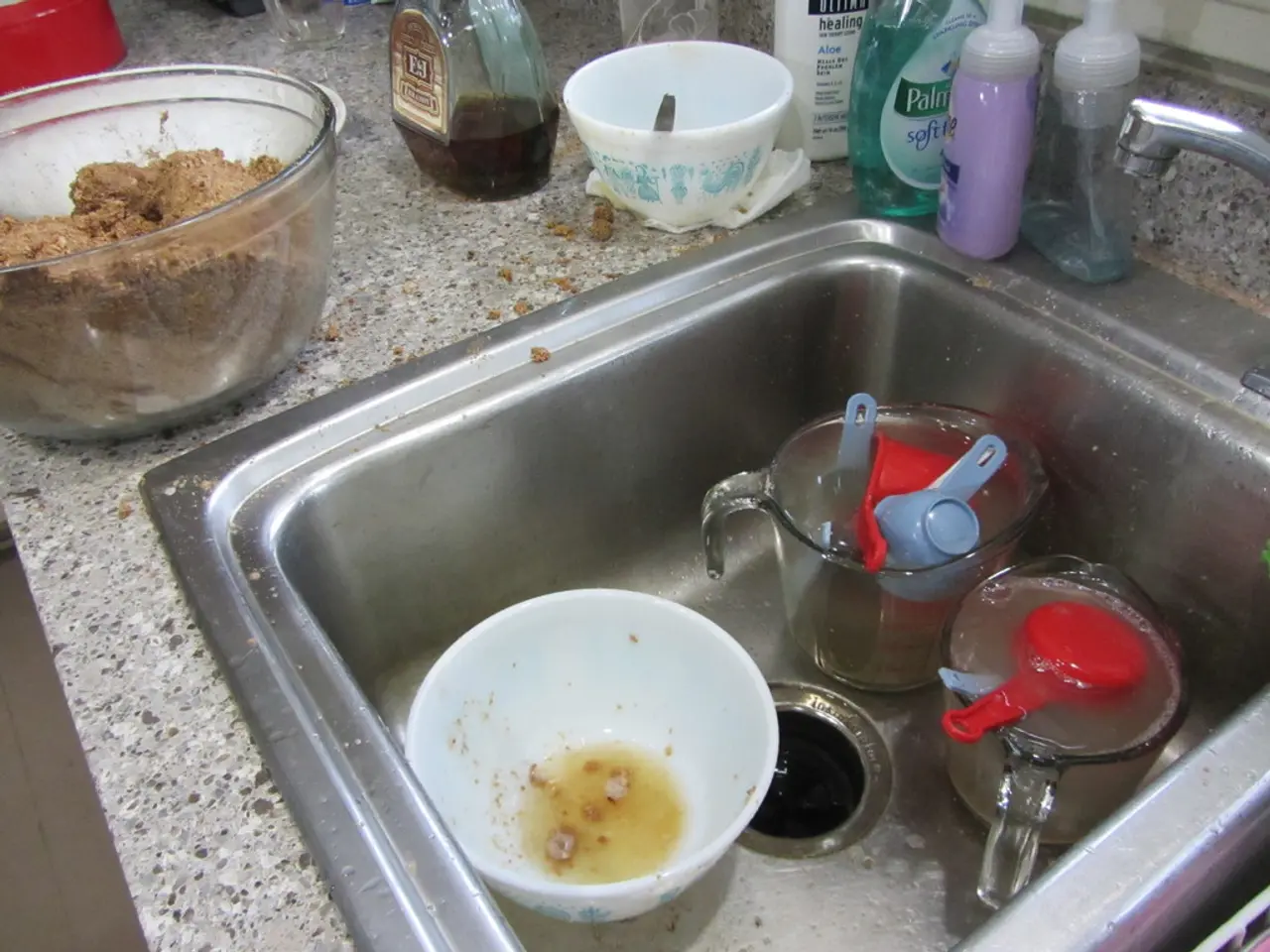Could Excessive Cleanliness Possibly Undermine Immunity Strength?
In the midst of the ongoing COVID-19 pandemic, it's essential to maintain good hygiene practices to protect ourselves and others. But there's a common misconception that these measures could potentially weaken our immune systems. Let's set the record straight.
According to the Centers for Disease Control and Prevention (CDC), regular hand-washing with soap and water for at least 20 seconds is the best way to remove germs and avoid getting sick. When soap and water are not available, using a hand sanitizer containing at least 60% alcohol is the next best option. The CDC also recommends cleaning frequently touched surfaces in the household, including doorknobs, light switches, counter tops, and faucets.
However, there's been speculation that increased cleaning and hand-washing could weaken immune systems. Dr. James Fernandez, an allergist and immunologist, states there is no scientific evidence to support this claim. In fact, temporary increases in hygiene practices during a pandemic, such as hand-washing and disinfecting, do not weaken the immune system in a way that would cause long-term harm or immune deficiency.
The role of personal hygiene in the so-called "hygiene hypothesis" is still debated. The hypothesis suggests that exposure to more viruses, bacteria, and pathogens early in life can lead to stronger immune systems. However, there is limited strong scientific evidence supporting this hypothesis. Studies have repeatedly shown that there are many other factors that can affect immune health beyond hygiene.
Proactively protecting immune health involves finding ways to cope with stress, fueling up smartly with a diet rich in fiber and healthy fats, regular exercise, getting enough sleep, and avoiding harmful substances like smoking and excessive drinking. Stress causes the body to make cortisol, which over time can lead to inflammation and reduce the ability to fight infections. A well-rounded diet with ample amounts of fiber and healthy fats helps keep inflammation at bay. Smoking and excessive drinking can weaken the immune system.
Regular exercise helps keep the immune system running smoothly. The average adult needs about seven to nine hours of sleep a night to ensure optimal immune function. Washing and sanitizing hands a lot can leave skin dry or cracked, so a good moisturizing lotion can be added to the hand-washing routine.
In summary, enhanced hygiene during pandemics controls infection spread effectively. Temporary reduced pathogen exposure may alter community immunity patterns but does not cause lasting immune system weakening. Immune strength relies on comprehensive factors like nutrition and health status, not hygiene habits alone. Skin irritation is a potential side effect of frequent hand hygiene, not immune weakening.
So, let's continue to prioritize good hygiene practices to protect ourselves and others, without fear of damaging our immune systems. Stay safe and healthy!
[1] https://www.cdc.gov/flu/about/disease/disease-transmission.htm [2] https://www.cdc.gov/handwashing/when-how-handwashing.html [3] https://www.ncbi.nlm.nih.gov/pmc/articles/PMC6300005/ [4] https://www.cdc.gov/coronavirus/2019-ncov/prevent-getting-sick/hand-washing.html [5] https://www.ncbi.nlm.nih.gov/pmc/articles/PMC6561711/
- Regular exercise, a good diet rich in fiber and healthy fats, enough sleep, and stress management are crucial components of health-and-wellness in addition to hygiene practices.
- Maintaining workplace-wellness can be achieved through implementing health-and-fitness initiatives, such as encouraging employees to engage in fitness-and-exercise routines and providing nutritious food options for meals.
- Science has shown that exposure to various pathogens during early stages of life can potentially contribute to stronger immune systems, a concept known as the hygiene hypothesis.
- Adequate hygiene practices like hand-washing and disinfecting help prevent the spread of diseases while not causing lasting immune system weakening, as claimed by some skeptics.




